Plans supporting this feature: Business Enterprise
Customer relationship management (CRM) is a technology for managing all your company’s relationships and interactions with customers and potential customers. Pipedrive is a deal-driven customer relationship management CRM solution that also works as an account-management tool with the ability to assist with marketing and the entire sales process. Pipedrive’s proactive nature automatically tracks and organizes calls and emails and synchronizes schedules across devices.
Integrating Pipedrive with Document360
Using Document360 as your Knowledge base platform and Pipedrive as your sales platform, you may encounter a need to create a corresponding Knowledge base article in Document360 whenever a new lead or contact is added in Pipedrive. This ensures that relevant information about leads or contacts is easily accessible and well-documented.
To establish a connection between Pipedrive and Document360, follow the below steps:
Ensure that you have logged into your Zapier account.
From the left navigation menu, click Create and then click Zaps from the options available.
Zap will be created with Trigger and Action flow.

Connecting Pipedrive and Document360 in Zapier
To establish a connection between Pipdrive and Document360, follow the below steps:
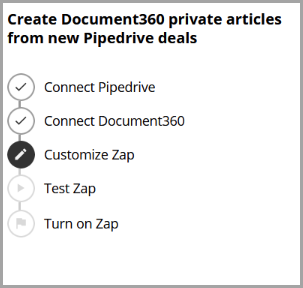
Step 1: Connecting Pipedrive
In the Trigger field, choose Pipedrive.
In the Trigger event field, select the required Event to trigger in the GitHub.
If you wish to configure a different app later, you can do that by clicking on Change.
Click the Account field, and a Sign-in panel will appear.
Enter your sign-in credentials and click Allow and Install.
Zapier runs a test to make sure the trigger is correctly configured.
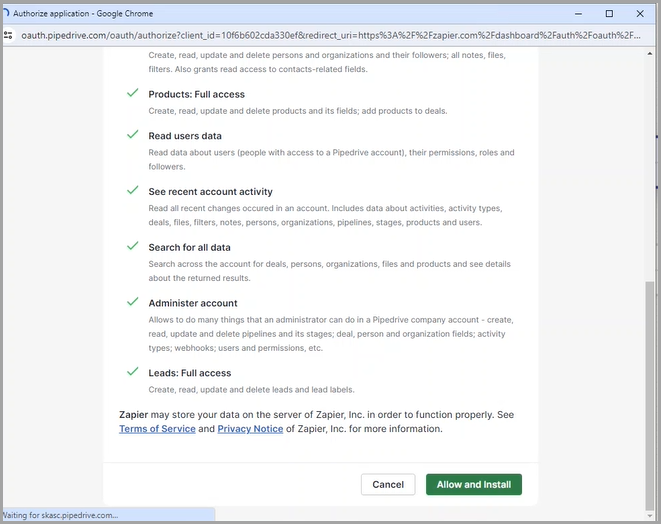
Step 2: Connecting Document360
In the Action field, choose Document360.
On the Setup panel that appears on the right, select a desired event in the Event field.
Click the Account field and a Sign-in panel appears.
Enter your sign-in credentials and click Allow.
To generate the API token from the Document360 portal,Navigate to Connections () > Extensions in the left navigation bar in the Knowledge base portal.
On the Zapier extension tile, click Connect.
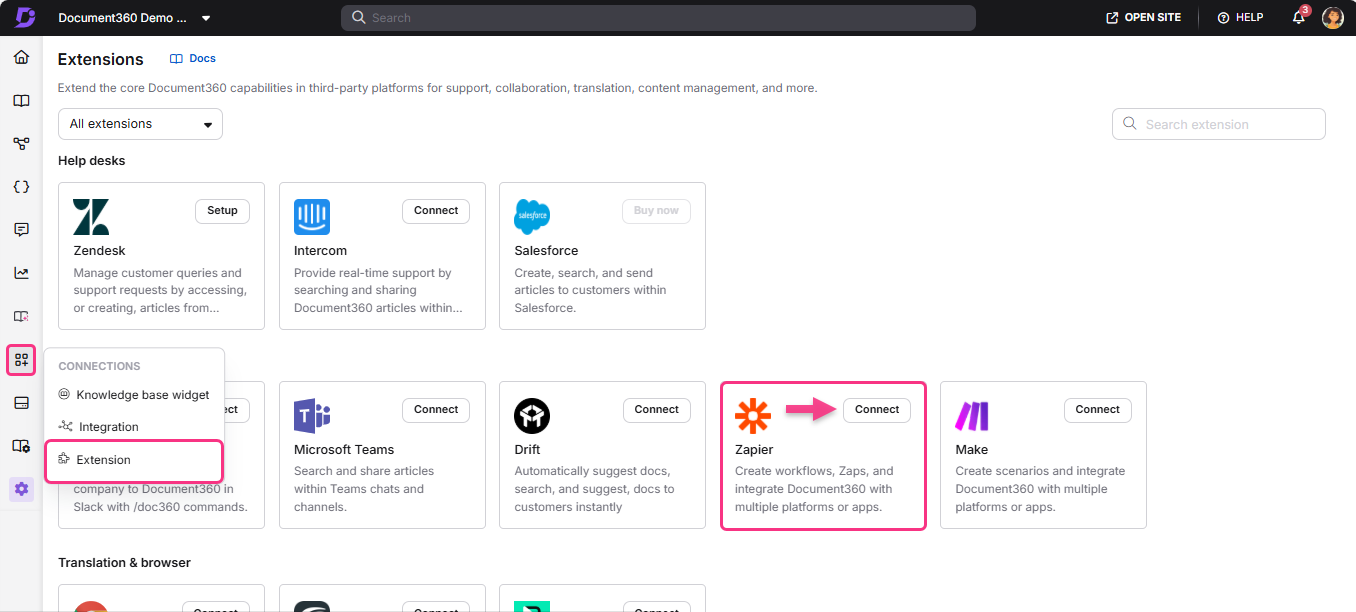
Click the Copy () icon to copy the token.
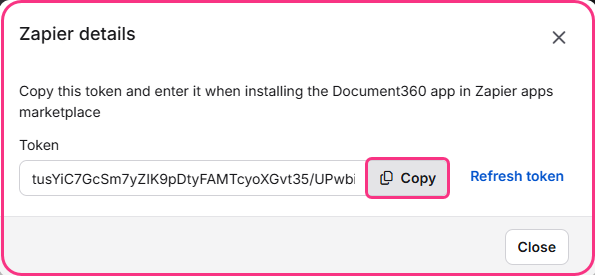
Head back to the Zapier panel and paste the API token in the field.
Click Yes, Continue to Document360.
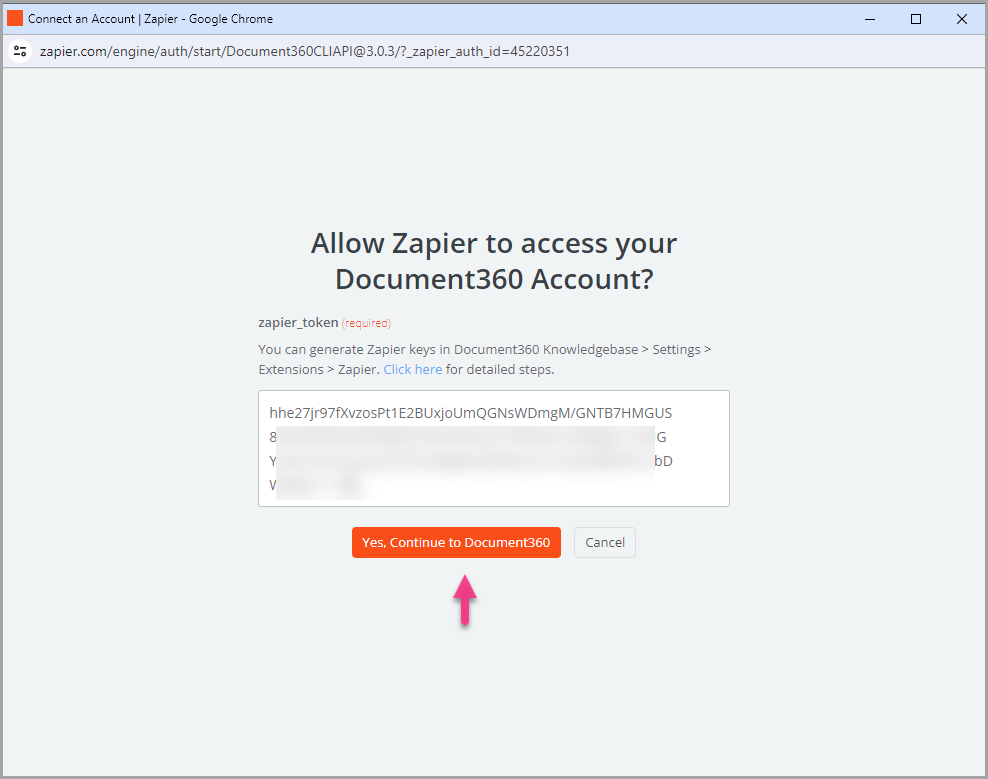
You can find the connected Document360 project on the Connect Document360 account page.
Click Continue.
Step 3: Customize Zap
Map all the required fields:
Title: Choose a suitable title from the options available.
Content: Choose suitable content based on your business requirements.
Version: Select the workspace in your knowledge base project where the article should be created.
Language: Choose the language for the article within the selected workspace.
Category: Select the category under the chosen language where the article will be created.
Publish: Set to True to publish the article immediately or False to save it as a draft.
Once done, click Continue. The button enables only when all the fields are filled.
Step 4: Test Zap
In the test section, click Test step.
If it is successful, you will get the message ‘A Document was sent to Document360.’
In your Document360 Knowledge base portal, you'll find the article titled ‘Title of your Pipedrive deal’, located in the folder you previously selected.
Head back to the Zapier setup panel and click Next.
Once done, click Publish.
Turn on Zap
To turn on a Zap once it is tested and published, follow the below steps:
After testing the Zap, review or edit the settings before turning on the Zap.
You can edit the settings configured on the Pipedrive trigger and the corresponding action of the new article in Document360.
You would get a success message stating Your Zap is on. You can click on the Manage your Zap button to go to your Zap overview page.
Zap overview
Create articles in Document360 whenever a new sales deal is added in Pipedrive
You can view and edit the information about the Zaps created on the Zap overview page.
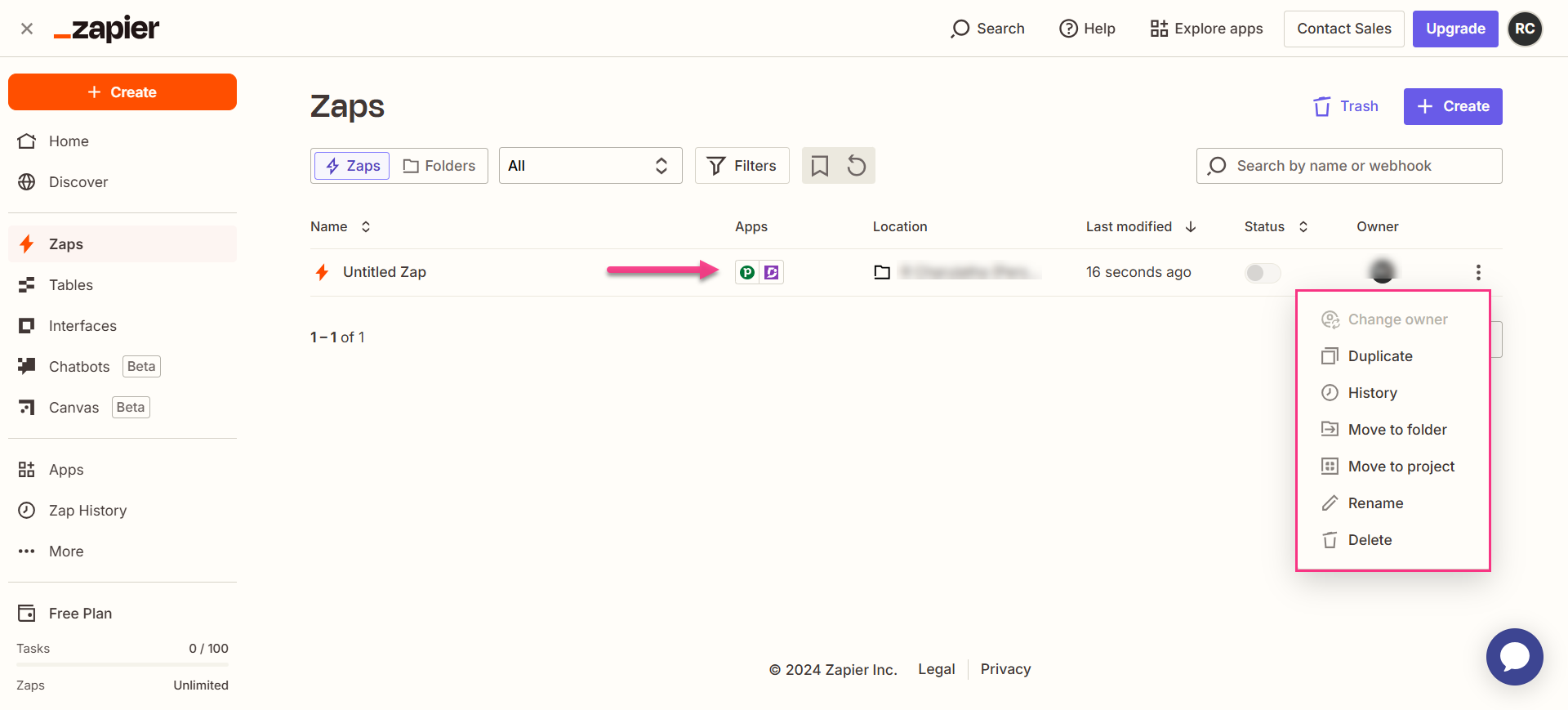
Deleting a Zap
To delete a Zap that you have created,
Navigate to the Zapier dashboard. On the overview page, a list of all existing Zaps will be displayed.
Click the Zap actions () icon to the right of the desired Zap and click Delete.
The selected Zap will be deleted.